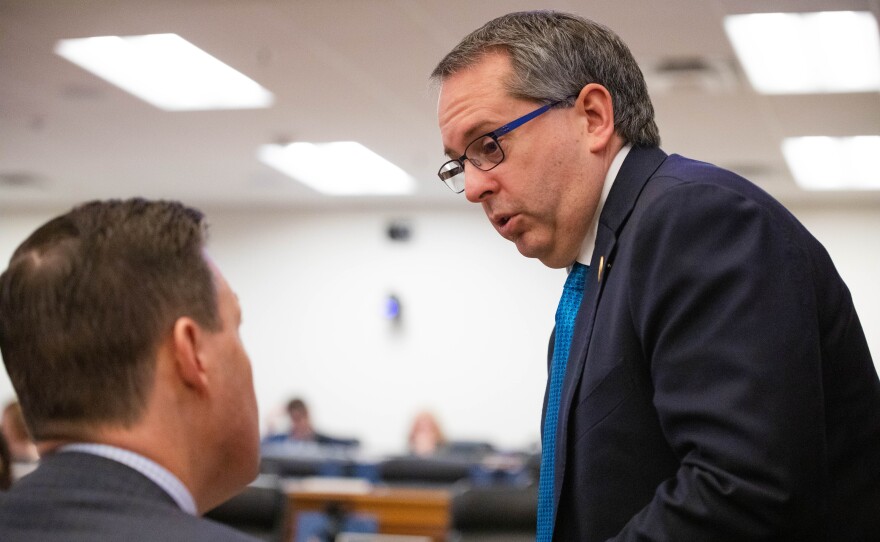The General Assembly approved a measure Tuesday to ban the use of solitary confinement in Virginia prisons. It was spearheaded by unlikely collaborators, but some advocates for abolishing the practice say the bill still misses the mark.
Dels. Glenn Davis (R-Virginia Beach) and Don Scott (D-Portsmouth) came together on what has typically been a partisan issue in Virginia. The bill initially included guidelines for when prison officials are allowed to put someone in isolation. It capped the number of days prison officials can hold people in isolation to 15 during any 60-day period and required officials to notify family members when a person is separated from the general population.
But it lost support from advocates when Davis amended the bill on the House floor, removing all of those provisions.
Shawn Weneta, a policy strategist with the ACLU of Virginia, said the law now allows the Department of Corrections to keep somebody in solitary confinement without any real justification.
“Honestly, in its current posture, it, in our opinion, would actually be a step backwards,” he said. “We don't believe that we should be codifying what the department is already doing and codifying unfettered discretion.”
Weneta now supports a similar bill, sponsored by Sen. Joe Morrissey (D-Richmond), that has the guardrails and limitations advocates are asking for. That bill passed the Senate and is currently before the House.
For years, the Virginia Department of Corrections has said it does not use solitary confinement but something else called “restorative housing,” during which prisoners are allowed at least four hours outside of their cell each day. Davis’ amended bill codifies that policy.
“If you watch the subcommittee meeting we had last year, there were a number of stakeholders and witnesses testifying that there were individuals that were offered only one hour a day out of their cell,” Davis told VPM News on Tuesday. “There was some discussion and disagreement [about] that. This puts an end to that conversation.”
The department declined to answer questions posed by VPM News on Tuesday. But officials previously said limiting VADOC's ability to separate prisoners from the general population could be a safety risk.



